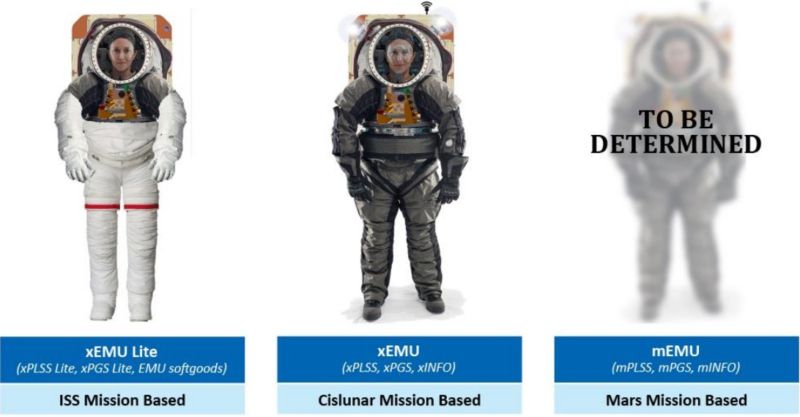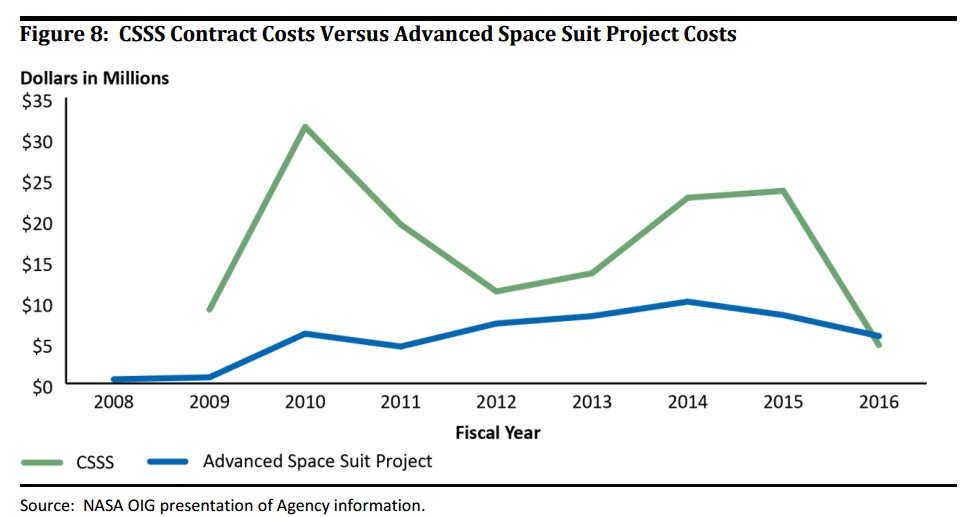
When NASA began developing a rocket and spacecraft to return humans to the Moon a decade ago as part of the Constellation Program, the space agency started to think about the kinds of spacesuits astronauts would need in deep space and on the lunar surface. After this consideration, NASA awarded a $148 million contract to Oceaneering International, Inc. in 2009 to develop and produce such a spacesuit.
However, President Obama canceled the Constellation program just a year later, in early 2010. Later that year, senior officials at the Johnson Space Center recommended canceling the Constellation spacesuit contract because the agency had its own engineers working on a new spacesuit and, well, NASA no longer had a clear need for deep-space spacesuits. However, the Houston officials were overruled by agency leaders at NASA's headquarters in Washington, DC.
A new report released Wednesday by NASA Inspector General Paul Martin sharply criticizes this decision. "The continuation of this contract did not serve the best interests of the agency’s spacesuit technology development efforts," the report states. In fact, the report found that NASA essentially squandered $80.6 million on the Oceaneering contract before it was finally ended last year.
NASA leadership told the inspector general that it made the decision to continue the contract because it wanted to keep industry engaged in spacesuit design, but the report dismisses this idea, noting the agency's in-house Advanced Space Suit Project shared several contractors and primary subcontractors with Oceaneering. Moreover, the report found that many of NASA's in-house concepts and designs were ahead of those under the Oceaneering contract. "For example, one study found that the Rapid Cycle Amine swingbed used in the Advanced Space Suit Project design is 'far more advanced' than the (Constellation) concept," the report states.

In a written response to the inspector general, NASA's chief of human spaceflight William Gerstenmaier argued that the report is "overly critical" of the agency's decision and that "we respectfully disagree that the facts presented to the OIG support that portion of the report." This response from Gerstenmaier appears not to have moved Martin, who wrote that "we continue to believe" the contract should have been canceled in 2011.
Not enough suits?
The new report also raises concerns about NASA's existing stock of spacesuits used as part of the International Space Station program for spacewalks. NASA has experienced some design problems with these Extravehicular Mobility Units, or EMUs, in recent years—most notably a water issue with Luca Parmitano's helmet in 2013. Additionally, NASA only has 11 of the original 18 EMU units left for future operations.
"The inventory may not be adequate to last through planned retirement of the ISS in 2024," the report states. "Given these issues, NASA will be challenged to continue to support the (spacewalk) needs of the ISS with the current fleet of EMUs through 2024—a challenge that will escalate significantly if station operations are extended to 2028."
The report recommends that NASA develop a formal plan for the design, production, and testing of next-generation spacesuits to meet the agency's needs. The report also says NASA should study whether the current EMUs will allow it to complete its work on the space station or whether a next-generation spacesuit will be needed if the station's lifetime is extended to 2028. In his response, Gerstenmaier said the agency would study this issue and report back by the end of September.
reader comments
64